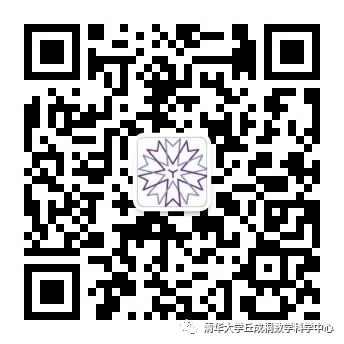Speaker: Zhengwei Liu (Tsinghua & BIMSA)
Time: Friday 16:00-17:30, May 23, 2025
Venue: Shuangqing-B627
Zoom: 230 432 7880 (PW:BIMSA)
Title: Quon Classical Simulation: Unifying Clifford, Matchgates and Entanglement
Abstract: We propose a unified classical simulation framework for quantum circuits, termed Quon Classical Simulation (QCS), built upon the diagrammatic formalism of the Quon language. Central to this framework is the introduction of magic holes, a topological feature that captures the global source of computational hardness in simulating quantum systems. Unlike conventional measures, the complexity of QCS is governed by the topological entanglement entropy associated with these magic holes. We show that Clifford circuits and Matchgate circuits are free of magic holes and thus efficiently simulable within our model. To capture the interaction structure of magic holes, we define a topological tensor network representation and develop novel skein relations and reduction algorithms to simplify circuit representations. This approach significantly improves the efficiency of classical simulations and provides a unified explanation for the tractability of various known quantum circuit classes. Our work offers a new topological perspective on the classical simulability of quantum systems and topological complexity.
Title: Quantum advantage for near-term and fault-tolerant quantum computers
Speaker: 袁骁 Xiao Yuan (Peking University)
Time: 16:00-17:30, 2025-03-27
Venue: Shuangqing-B627 Online: Zoom 293 812 9202 (BIMSA)
Abstract: Quantum computers have the potential to solve classically intractable problems. However, realizing a universal quantum computer is challenging with current technology. Before having a fully-fledged quantum computer, a more realistic question is what we can do with current and near-term quantum hardware. In this talk, I will first review the quantum algorithms that are designed for near-term and fault-tolerant quantum computers. Then, I will introduce our recent works about classical simulation of quantum processes. Finally, we discuss the possibility of achieving quantum advantages in the early-fault tolerant era.
Speaker Intro: Dr. Xiao Yuan received his Bachelor in theoretical physics from Peking University in 2012 and got his PhD in physics from Tsinghua University in 2016. Then he worked as a postdoc at University of Science and Technology China in 2017, at Oxford University from 2017 to 2019, and at Stanford University from 2019 to 2020. He is now an assistant professor at Center on Frontiers of Computing Studies, Peking University. Dr. Xiao Yuan’s current research interests focus on near-term and universal quantum computing, and their applications.
Title: Quantum Computing Hardware Platforms: A Focus on Neutral Atoms and Trapped Ions
Speaker: 张颉颃 Jiehang Zhang (BIMSA)
Time: 16:00-17:30, 2025-03-21
Venue: Shuangqing-B627 Online: Zoom 230 432 7880 (BIMSA)
Abstract: Quantum computing is rapidly advancing, with diverse hardware platforms vying to overcome the challenges of scalability, coherence, and error correction. This talk provides an overview of the leading quantum computing hardware platforms, with a particular focus on neutral atoms and trapped ions—two of the most promising approaches in the field. Neutral atom systems leverage ultra-cold atoms trapped in optical tweezers, offering excellent scalability and long coherence times, while trapped ions utilize precisely controlled atomic ions confined by electromagnetic fields, achieving high-fidelity gate operations and low error rates. We will compare the strengths and challenges of these platforms, highlighting recent breakthroughs in qubit control, entanglement generation, and error correction. By exploring the unique advantages of neutral atoms and trapped ions, this talk aims to provide a gentle peek into their potential to enable scalable, fault-tolerant quantum computing.





